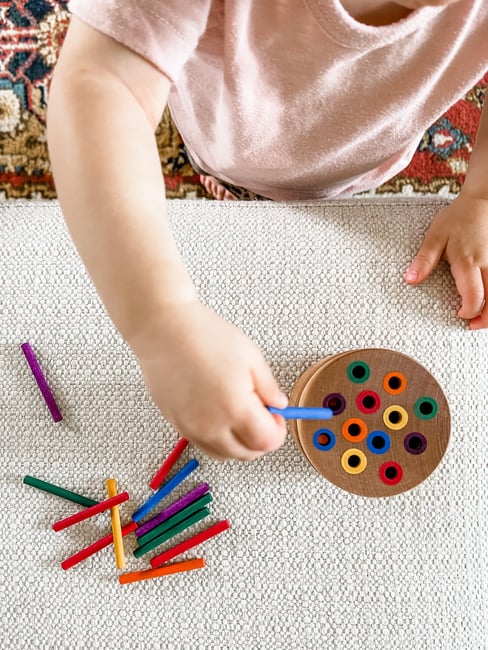In an era where education is constantly evolving, parents are faced with the task of choosing the best learning environment for their children. Traditional education has long been the standard for many, but Montessori education has stood out as a highly effective pedagogy that has been around for over 100 years. The center of Montessori education starts with Dr. Maria Montessori who first introduced the method over 100 years ago. In the present day, many have adopted the method much like The Clover School. At The Clover School, we pride ourselves on offering a Montessori education that not only nurtures the academic growth of our students but enhances overall school experience. In this blog post, we'll delve into a recent analysis cited by Psychology Today, which highlights the advantages of a Montessori education over traditional methods.

Academic Benefits in Language and Math
A new study by the Campbell Collaboration featured in Psychology Today has revealed that a Montessori education provides distinct academic benefits, particularly in language and math. The study compared Montessori education with traditional methods, and the results were nothing short of remarkable.
In the realm of language, Montessori students consistently outperformed their traditionally educated counterparts. The self-paced, hands-on learning approach in Montessori classrooms allows children to explore language at their own speed, making it more likely that they will develop strong language skills. This finding reaffirms our commitment at The Clover School to provide a language-rich environment where children can immerse themselves in words, stories, and conversations.
Moreover, Montessori students also excelled in math. The use of manipulative materials in Montessori classrooms helps children grasp abstract mathematical concepts with ease. The article states, “Montessori students were, on average, a full school year ahead by sixth grade, according to the analysis." The hands-on experience, not only promotes a deep understanding of math but also fosters a genuine love for the subject. With this approach to math, the students are able to visualize the material they are working with which furthers their comprehension of math concepts. At The Clover School, we believe that a strong foundation in math is crucial, and our Montessori approach aligns perfectly with this goal.

Stronger Executive Function
Executive function skills are essential for success in school and life. These skills encompass the ability to plan, organize, focus, self-regulate, and adapt to changing situations. The analysis also found that Montessori students demonstrated stronger executive function skills compared to their peers in traditional education.
One of the key factors contributing to this advantage is the autonomy granted to Montessori students. In our classrooms, children have the freedom to choose their activities, set their pace, and take ownership of their learning. This autonomy fosters responsibility and self-discipline, two critical components of strong executive function.
Furthermore, the mixed-age classrooms at The Clover School encourage older students to mentor younger ones, promoting empathy and cooperation. This collaborative environment enhances social skills and emotional regulation, which are also integral aspects of executive function development.

A More Positive School Experience
It's not just about academic achievement; a child's overall school experience plays a pivotal role in their development. In addition, the analysis within the article pointed out that Montessori students reported a more positive school experience compared to those in traditional education.
At The Clover School, we believe that a positive school experience is the foundation of a lifelong love for learning. Our Montessori approach fosters a sense of belonging and community among students, which contributes to their overall well-being. When children are happy and engaged in their learning, they are more likely to thrive academically and emotionally.

The recent study by the Campbell Collaboration highlighted by Psychology Today underscores the many advantages of a Montessori education, especially when compared to traditional methods. At The Clover School, we are committed to providing an educational experience that not only enhances academic performance but also nurtures executive function skills and fosters a positive school environment. We invite parents to explore the Montessori difference and join us on a journey of holistic education that prepares children for success in school and in life.


